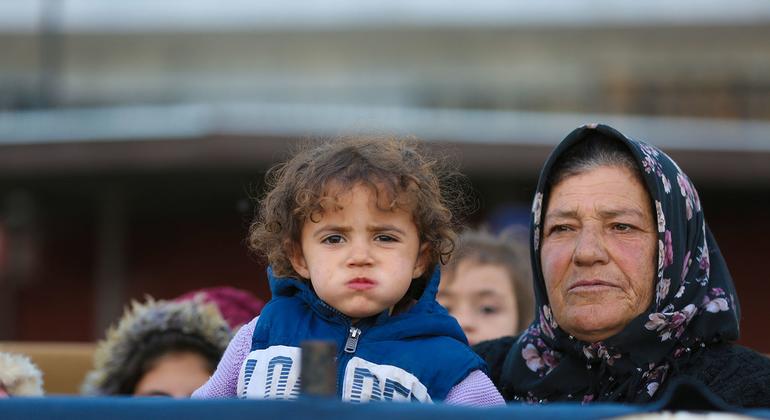In an exclusive interview with UN News, Najat Rochdi, the UN Deputy Special Envoy for Syria, shared her insights on the situation in the country as it grapples with a humanitarian crisis and a struggling economy. Rochdi emphasized the importance of ensuring that all Syrians are able to participate in shaping the country’s future, particularly in the aftermath of the fall of the Assad regime.
Reflecting on her second visit to Syria since the regime change, Rochdi expressed awe at the level of joy, hope, and euphoria she witnessed among the Syrian people. She noted that while there is a sense of optimism for the future, there are also high expectations for rebuilding what was destroyed during the conflict, including the dignity of all Syrians. Rochdi emphasized the importance of inclusivity in the rebuilding process, highlighting the need for fair representation of women and men from diverse backgrounds.
During her visit, Rochdi met with various members of the transitional authorities in Syria who have expressed a willingness to lead the country towards a better future that meets the aspirations of all Syrians. She highlighted the importance of promoting social cohesion and unity among communities that were previously pitted against each other. Rochdi commended the decision to organize a national dialogue as a crucial step towards hearing the voices of all Syrians who have endured immense hardships.
When asked about the role of the UN during this critical time for Syria, Rochdi underscored the importance of engaging with diverse groups across the country to understand their priorities, concerns, and needs. She emphasized the need to support and accompany the political transition process by listening to the voices of feminists, religious leaders, and community representatives. Rochdi identified the establishment of the whereabouts and fate of missing persons as a top priority, acknowledging the heartbreak and uncertainty faced by families seeking closure.
Rochdi recognized the deep pain and trauma experienced by survivors and families of the missing, emphasizing the need for accountability without seeking revenge or retaliation. She stressed the importance of pursuing a process of real justice to address the suffering and facilitate healing within communities. Rochdi acknowledged the challenges ahead but remained hopeful that through collective efforts and a commitment to justice, Syria can transition towards a more inclusive and peaceful future.
As the UN Deputy Special Envoy for Syria, Rochdi’s visit and insights shed light on the complexities and opportunities facing the country as it navigates a critical juncture in its history. Her emphasis on inclusivity, social cohesion, and justice underscores the importance of addressing the needs and aspirations of all Syrians as they strive to rebuild their nation and move towards a brighter future.









